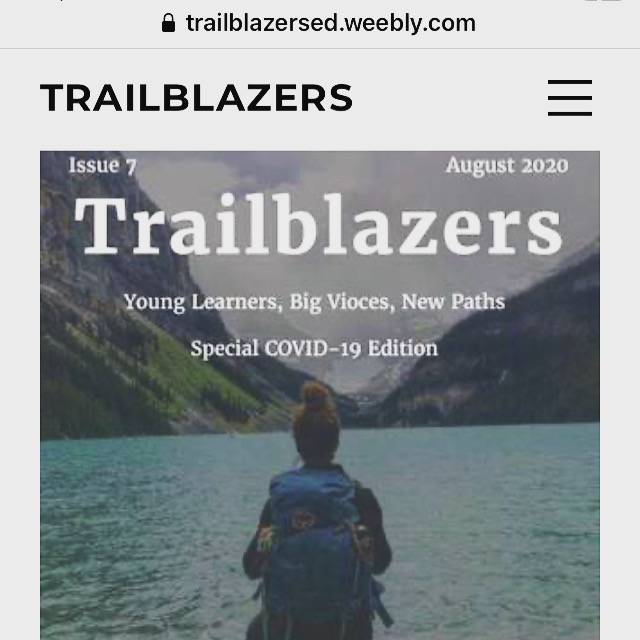Why are there not more facilitated opportunities to learn about different majors? In high school we have advisors that help with deciding on a college and in college we have advisors within majors to help select classes and career options, but there doesn’t ever seem to be advising on selecting a major. And sometimes our high school experiences easily lend towards an obvious major, but more often then not this doesn’t happen so obviously. I’ve met so many adults that say “Oh if I would’ve known x degree existed back when I was an undergrad, I totally would’ve done that instead.”
I personally entered as an undecided engineering major and found myself just thrown in with all of the mechanical engineers for advising purposes I guess because it is assumed that’s the major most undecided engineers will eventually switch into. However, this advisor was not really able to help me learn about the other potential majors – she specialized in mechanical engineering so that’s what she knew and could advise on…
I had an old friend post this week about realizing she wasn’t enjoying her classes and thought maybe she should change her major, so she wanted advice on how to decide on her new major. The majority of the comments on this post say something along the lines of “Don’t worry, it’s okay to not have it figured out! I changed my career path x times!” etc…
This seems to be a fairly common response anytime someone asks about selecting a major and I’ve realized recently that it really bothers me because this response doesn’t given actionable advice.
I feel like everyone kind of knows that it’s okay to change paths and have periods of time in your life when you don’t have things figured out – our society has long since moved on from the idea of people just having one career their entire life, and now the norm is for change. So while perhaps it provides a smidge of reassurance to be told “It’s okay to not know,” it can also just be irrelevant entirely; just because someone asks for help about selecting a new path doesn’t necessarily imply that they are particularly concerned about their current status paused on a path. By the time you ask for advice you’ve already accepted that you don’t know what’s next, and often times have made piece with that knowing it’s a normal position to find yourself in, what you are asking for is advice on how to decide which direction to move next.
This seems like a totally reasonable thing to ask and yet so often no one really has a helpful answer…
So here was my answer which I wanted to blog about because it seems like such a commonly asked question that gets unsatisfactory responses:
When you are unsure about the future, look to the past. What experiences have you had that you really enjoyed and what did you really not enjoy? Consider an experience anything that might fit into a category on a resume: paid work, volunteer work, projects, learning a new technical or communication skill, unique study opportunities (such as abroad or participation in a special program), and/or leadership. At first don’t analyze the experiences too hard, just on gut reaction if you enjoyed it, title it and put it in the enjoyed list or visa versa for disliked. (Knowing what you don’t like is super helpful so don’t disregard that list because it will help narrow options often faster than the like list.)
After you’ve listed out experiences you liked and dislike (or just didn’t particularly enjoy), then start thinking through what you did in those experiences. Use verb phrases to keep it short and focused. For example maybe you enjoyed volunteering at a animal shelter, so some verb phrases might be: played with dogs, organized pantries, emailed partners and customers.
Look for patterns in terms of skills needed for the experiences, content, styles of work (individual/collaborative/virtual, etc), roles played, any sort of pattern, then try to line up these patterns with a few majors that might lead towards similar experiences. Then go talk to as many people as you can related to those different majors, both students and advisors to get a feel for the differences between majors and look at courses you’d take to see what sounds interesting.
I had entered as engineering because I knew I liked problem solving and project based work and I was good at math and science so everyone suggested engineering. However, once I started to think more about past projects I enjoyed and the roles I played on those teams, I realized that I never particularly cared for the CAD or 3D printing work, and another peer was the one the go to person for engineering type work. Meanwhile, I more often ended up in a management esk role and would lead tasks involving planning, communicating, and presenting, thus I switched to major in business because the courses seemed to be in line with those roles and skills – the actual topics/content material of those projects wasn’t the most important part in decision making even though it seems that’s the part people usually think about when deciding majors.
So maybe this advice will be helpful to someone, or maybe not, but the bigger reason this conversation is interesting to me is because I feel there is gap and a need here. Choosing a major is a big part of college, and while it’s totally okay to switch majors, wouldn’t it be nicer for everyone if less people needed to switch? Just because something has been normalized doesn’t make it not an issue…
It can sometimes be really expensive to switch majors if this then means you have to take more classes and maybe stay in school longer. Plus, some colleges are better suited for different majors, so if you had a better sense of your potential major in high school, then you would be able to look at schools with better resources for your interests.
I hypothesis that so many students switch majors because of two primary reasons 1) they don’t have the best understanding of their options and/or 2) they don’t have the best understanding of themselves. Additionally, I believe working to gain this understanding only after coming to college is too late for meaningful impact on the challenge of switching majors. If high school could do a better job helping learners with both of these issues before learners need to choose majors, I think this would lead to less people switching majors which would ultimately save a lot of money and time for hundreds of people.
How might they do this? Well since I always like to include at least a quick brainstorm when I propose challenges, here are some initial thoughts of mine not too fleshed out (and some of which probably already happen just not wide spread):
- being more intentional about noting connections between class work and their relation to majors/careers
- do the same activity I propose above which also could be tied in with learning about resume writing
- hold major fairs where high school students can talk to people about different majors
- when assigning team projects, don’t just create teams, but create roles on the team as well (whether the students create the roles or they are predesigned, having conversations about roles and responsibilities is important to thinking about future majors and careers)










